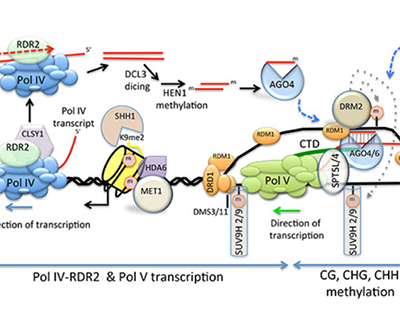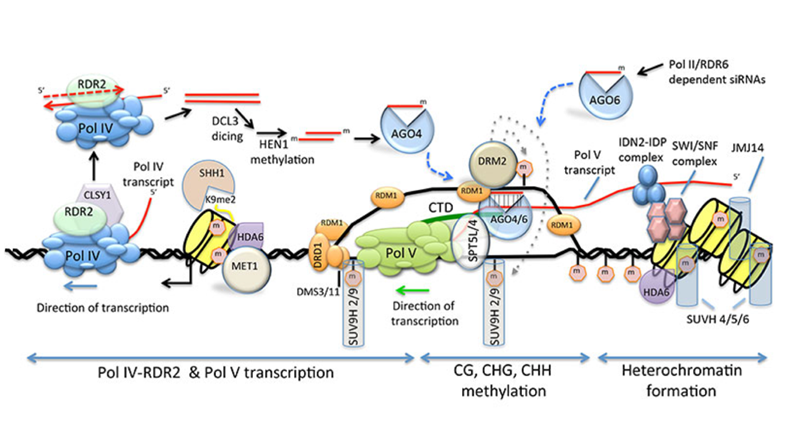Research Group: Evolutionary Systems Virology
Genomic defenses against viruses in plants are actually part of a broader and conserved interconnected system used for a plethora of mechanisms in eukaryotes, including the regulation of gene expression by endogenous siRNAs and other types of small RNAs (sRNAs), defense against genomic invaders like transposons and establishment of the heterochromatin.
Recently, a number of studies have suggested that changes in chromatin states due to the addition of epigenetic marks to DNA or DNA-associated proteins are also closely related with pathogen control in plants. By relaxing or tightening the chromatin in response to environmental signals, epigenetic marks can promote genome-wide and transmissible rearrangements in gene expression, optimizing the response against pathogens or other stimuli. Epigenetic marks can be generically divided in two groups: DNA methylation and histone modifications. Packing of the DNA around histone-containing nucleosomes are highly influenced by both types of epigenetic marks, controlling the accesses of RNA transcriptional machinery to target loci. Therefore, those mechanisms may have an important impact on pathogen evolution. This is particularly important when emerging viruses are considered. In those cases, the balance between the diversity of host's defense factors and viral populations will determine if the interaction will lead to disease, and to what extent, or to pathogen's control. Pathogen-acquired adaptations, on the other hand, can also potentially affect the type or intensity of epigenetic responses. Plant RNA viruses are interesting tools for studying these kinds of interactions for several reasons. First, RNA viruses, including plant viruses, have a rapid and error-prone replication rate and big population sizes. Therefore, their potential for evolvability, referred as the capacity of generating adaptive diversity, is very high. Furthermore, evolutionary studies on plant viruses are tractable and can be performed in real time, using hosts that are easy to manipulate, but having a complex physiology, with intercommunicating cell types and tissues, intricate developmental processes and several antiviral defenses that come into play.
Ref. GRISOLIAP/2018/005
Santiago F. Elena
- Anamarija Butković
- Régis L. Corrêa
- Denis Kutnjak
Conselleria d’Educació, Investigació, Cultura i Esport, Generalitat Valenciana
















